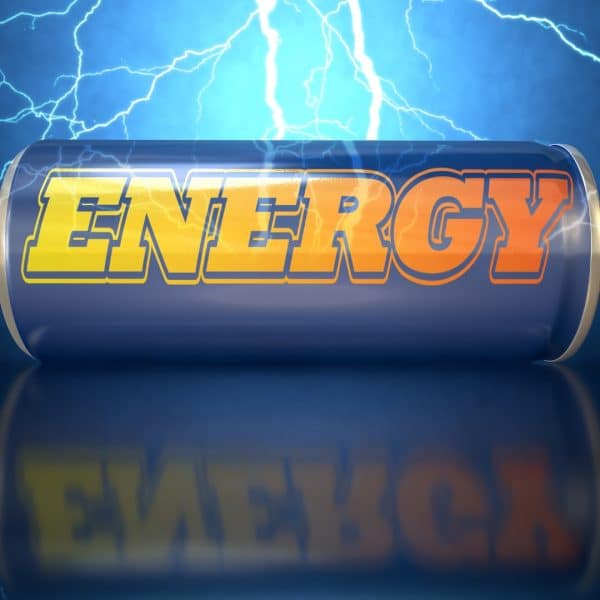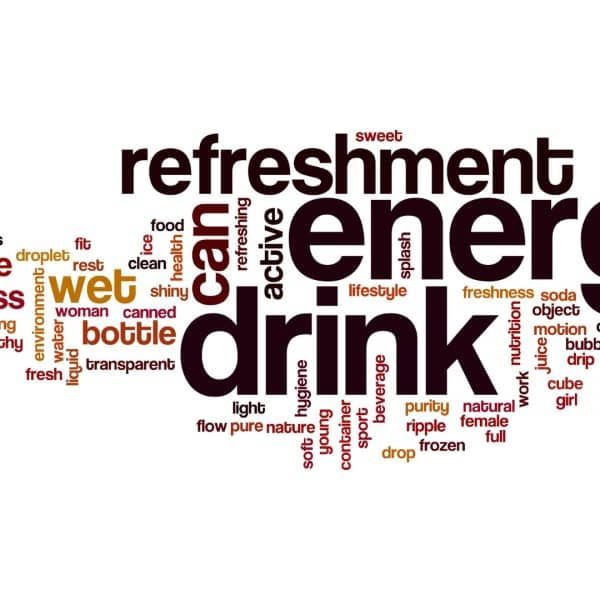Functional beverages have become increasingly popular over the past few years, with many companies now adding supplements, vitamins, minerals, herbs, and additional ingredients to drinks that supposedly provide health benefits beyond basic hydration. But are these functional drinks all they’re cracked up to be?
And what exactly are they, and how are they different from regular drinks? As a registered dietitian, I’m often asked if the pros outweigh the cons regarding functional beverages. They promise all these health perks, but are they too good to be true? I’m here to break it all down for you. So, let’s dive in and figure out the pros and cons of functional beverages and if these drinks are worth all the hype!
What Are Functional Beverages?
OK, what exactly are functional beverages, and what makes them different from ordinary drinks? Functional beverages are products fortified with extra ingredients that supposedly deliver health benefits beyond basic hydration. Now, they’re not just your typical taps of water, coffee, or tea!
These functional drinks have extra vitamins, minerals, supplements, herbs, or added nutrients intended to help fill nutritional gaps, promote wellness, aid with certain conditions, or boost performance. For example, popular ingredients often include collagen for skin and joints, adaptogens for reducing stress, electrolytes for hydration, probiotics for digestive health, and compounds targeting better sleep, heart health, immunity, energy levels, workout recovery, and more.
So while standard beverages like juice or soda quench thirst, functional drink makers carefully formulate their products with special ingredients to supposedly enhance physical and mental well-being. The ultimate goal is providing that “nutritional insurance” for overall better functioning while preventing or managing various health issues.

The Pros And Cons Of Functional Beverages
The Pros:
- Extra Nutrients: Many functional beverages contain extra vitamins, minerals, and other good-for-you compounds. This can help fill in nutritional gaps that are super common. Getting enough nutrients is key for our bodies and brains to work properly, so a nutrient boost is a nice perk!
- Anti-inflammatory Effects: Early research shows certain common functional ingredients like green tea, tart cherry juice, and ginger may help tame chronic inflammation in the body. This could play a role in preventing major health conditions like autoimmune diseases down the road.
- Brain And Energy Boost: Functional drinks often include supplements like B vitamins, ginseng, and L-carnitine that are said to increase mental and physical energy temporarily. Studies show that, for some people, they can temporarily help increase alertness, concentration, and athletic performance. Also, those with low nutrient levels might see a brain boost from extra B vitamins.
The Cons:
- Tummy Troubles: Common complaints from functional beverage consumers are digestive issues like diarrhea, cramping, and bloating. Probiotics, prebiotics, and sugar alcohols are frequent offenders. Starting with a small amount when trying new functional beverages can help avoid disaster pants!
- Interactions With Medications: Functional beverage ingredients like herbs, amino acids, probiotics, electrolytes, and added nutrients could interact with both prescription and over-the-counter medications. These drinks often contain warnings to consult a doctor before consuming for this reason. They have the potential to alter medication effectiveness and exacerbate side effects if taken together.
- Micronutrient Overload: While filling nutrition gaps is great, it’s totally possible to go overboard on vitamins, minerals, and other supplements. Consuming excessive amounts long-term poses legitimate health risks. Consuming too much-preformed vitamin A, niacin, vitamin B6, iron, zinc, etc. over time can cause negative health consequences. It’s important not to rely solely on functional drinks to meet all nutrient needs.
- Sugar And Calorie Overload: Some functional beverages hide a ton of added sugar and calories. Too much extra can contribute to obesity, diabetes, cardiovascular issues, and more over time. Carefully reading nutrition labels before purchase is key. Prioritizing functional drinks low in sugars and calories can help minimize this particular risk.
Ingredients Are Key
If choosing to include functional beverages, aim for varieties containing research-backed ingredients like:
- Green tea extract: Green tea contains powerful antioxidants called catechins, including a compound called EGCG which has been shown to have anti-inflammatory and anti-cancer properties. These antioxidants can help neutralize free radicals and protect cells from damage.
- Tart cherry juice: Tart cherries contain high levels of anthocyanins and other polyphenols that can significantly lower markers of inflammation. Tart cherry juice increases circulating melatonin levels in the body. This helps regulate sleep cycles, increasing sleep duration and quality.
- Turmeric and ginger: Curcumin is the main active compound in turmeric and has powerful anti-inflammatory effects, matching or exceeding some anti-inflammatory drugs in studies. This can help relieve arthritis, digestive issues, autoimmune conditions, and more.
- Specific probiotic strains: Probiotics influence immune system processes like natural killer cell and antibody activity plus gut mucosa function. Regular consumption has been shown to reduce the likelihood, duration, and severity of some infectious diseases and inflammatory issues.
- Prebiotic fibers: Prebiotics enhance immunity in multiple ways – increasing pathogen-fighting white blood cells, immunoglobulin A, mucin production, NK cell and macrophage activity. This lowers the incidence of infections like the common cold, flu, and GI viruses. Those with food sensitivities can also benefit.
- Collagen peptides: Collagen helps maintain cartilage integrity and reduces inflammation in joints. Multiple studies demonstrate collagen peptide supplements significantly reduce activities-related joint pain in athletes and those with osteoarthritis.
- Electrolytes like potassium and magnesium: Potassium and magnesium support the normal transmission of nerve signals plus aid blood pressure regulation due to favorable impacts on smooth muscle function surrounding arteries and blood flow modulation.
- Adaptogens like ashwagandha, rhodiola rosea: Ashwagandha demonstrates strong immunomodulatory effects by boosting cytotoxic T lymphocyte activity and reversing inhibition of immune signaling pathways. Rhodiola specifically boosts mental and physical performance when you experience things like fatigue, extreme heat/cold exposure, or lack of adequate sleep.
Limit varieties with:
- Excess added sugars
- Many herbal ingredients with limited research
- Problematic sweeteners like high fructose corn syrup
- Unnecessary calories and fat
- Proprietary “blends” that don’t disclose the exact amounts of nutrients/ingredients in their beverage

The Verdict
Research on functional beverages is still an emerging field. There’s promising evidence certain add-ins like green tea, tart cherries, collagen, probiotics, adaptogens, and specific vitamins/minerals can provide advantages related to inflammation, gut health, skin, hydration, nutrient status, mental acuity, exercise recovery, and more. However, studies demonstrating long-term disease prevention or major curative effects in humans are generally lacking. For healthy individuals without deficiencies, purported benefits from most functional beverage products tend to be somewhat minor or temporary. More research is necessary to determine if targeted functional drinks can help prevent or manage certain chronic diseases over time.
While functional beverages may have some pros, risks like GI issues, medication interactions, potential toxicity from excessive micronutrients, and increased calorie consumption are valid cons to consider as well. Overall the hype around functional drinks seems to outweigh the evidence for many products currently on the market. Carefully checking ingredients, opting for unsweetened varieties low in sugar and calories, being aware of potential interactions and contraindications, and monitoring individual tolerance and response seem most prudent if incorporating functional beverages. Moderating intake to avoid drastically exceeding nutrient needs also helps minimize risk. Ultimately functional beverages should complement, not replace, an overall healthy diet.
Conclusion: Pros and Cons Of Functional Beverages
So where does this leave us when it comes to functional beverages? As I’m sure you can tell by now, there are some benefits but no definitive slam dunks. The science behind many functional ingredients shows early promise. But long-term, irrefutable evidence of disease treatment or prevention in humans is often lacking.
As with most things in nutrition, moderation, and personalization seem to be key if you’re incorporating functional beverages into your diet. There may be instances where strategic use could help those with deficiencies, trouble staying hydrated, or other issues like pesky inflammation and gut disruption. Paying attention to how you feel after drinking any functional beverage can help determine if they provide noticeable perks for you.
But remember, guzzling down multiple functional drinks daily shouldn’t replace eating a balanced diet or consulting your doctor for any underlying medical conditions. For healthy individuals already meeting needs with whole foods, added functional beverage nutrition is likely unnecessary and perhaps risky if overdone. And of course, check in with your healthcare practitioner if you have concerns about interactions with medications or health issues.
At the end of the day, functional beverages are supplements – not substitutes. View them as accessories to an already solid nutritional foundation, not the whole structure itself. The budding potential is intriguing but also bound by limits. And as the wellness industry keeps expanding, claims will likely keep outpacing evidence. So enjoy functional drinks for an occasional bonus, but don’t hang every health hope solely on that bottle. Balance and moderation are always in style when it comes to nutrition!
Are you a fan of functional beverages? What’s your favorite brand? Leave a comment and let me know.
***Disclaimer: This post is for informational purposes only and should not be construed as medical advice***


